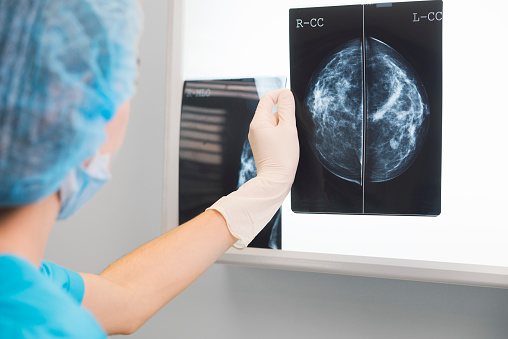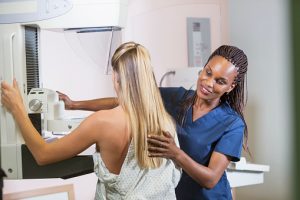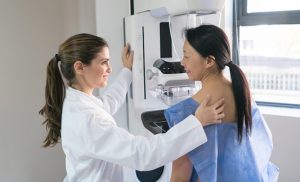You might already know that mammograms have reduced the occurrence of breast cancer deaths by 40% over the past three decades. You might also have heard that early detection is the best way to avoid extensive treatments for advanced cancer. You may have read all the statistics about mammograms and still not feel like the information applies to you. Especially if you’re young, and have no family history of breast cancer, you may be asking, “Why do I need a mammogram?” The truth is, every woman needs regular mammograms, for a number of reasons.
- Did you know that most women diagnosed with breast cancer aren’t considered high risk? It’s true: 75 percent of women with breast cancer don’t even have a family history of the disease. Even if you’re not high risk, it’s better to be safe than sorry.
- Aren’t regular breast self-exams enough? In fact, even though examining your breasts regularly can detect some lumps, a mammogram can detect problems up to two years earlier than you or your doctor can. The recommended course of action is to have both a physical breast health exam in combination with an annual mammogram.
- Breast cancer is more common than you may think. One in every eight women will be diagnosed with breast cancer in her lifetime. That’s a 12 percent risk, and the risk goes up as you age. While the risk for a woman in her twenties is only 1 in 1,667, it jumps to 1 in 68 by the time she’s in her forties. It’s recommended for women to have a mammogram every two years after age 40.
- Having regular mammograms gives you peace of mind. Out of every 1,000 women who have a mammogram for screening purposes, 100 are called back in for more mammography or an ultrasound. 20 are recommended for a needle biopsy, and 5 are diagnosed with breast cancer. In other words, the vast majority get the all clear. When you have a mammogram, you know you’ve taken charge of your health, and you can breathe easier because you have more complete information.
Now that you know all the reasons you need a mammogram, it’s time to decide where to go to get one. At Salem Radiology Consultants, we offer diagnostic, screening, or 3D mammograms, and we’re committed to providing you with the highest quality of care. A premier outpatient imaging center, Salem Radiology Consultants, or SRC, has been serving Salem and the greater Willamette Valley since 1973. We are the largest radiology group in the area, and our doctors provide a depth of specialization you’d expect to find only at major university medical centers. Call us today at (503) 399-1262 to schedule an appointment.



